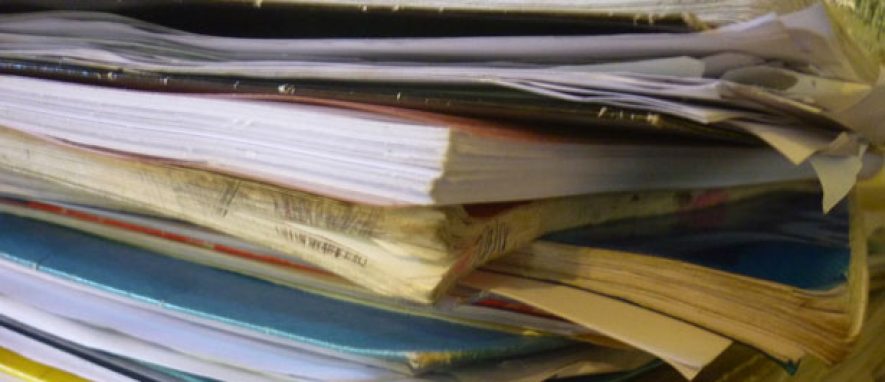This is what I wrote the night before my prelims began:
Tomorrow is the first day of my preliminary exam, an exam I have been stressing about (probably most PhD students do) since I began the doctoral program. In my program, this is a seven day exam during which I write a heck of a lot about four different areas: major, minor, theory, and research method. The prelim exam marks the completion of my coursework (go team!) when I’m expected to generally know what I want to do my dissertation on and sound reasonably confident when talking about it. If you would like to know exactly what my prelim exam is all about (why?), here’s an excerpt from my school’s doctoral guidelines:
Examination criteria generally relate to the following factors:
• mastery of specific knowledge in an area of specialization;
• familiarity with current trends in that area;
• knowledge of scholarly investigation in that area;
• knowledge of the interrelationships between the minor field and the area of specialization
(if the student has a minor area of specialization: see Section 5.3); and
• ability to relate the selected area of specialization to larger domains of knowledge and
scholarship
I didn’t sleep well last night and probably won’t tonight. But sometimes writing is helpful in moments of dread/panic/anticipation/nerves, so I’ve decided to give it a go. Being the overly organized person that I am, I’ve developed an exam schedule for myself which looks like this: Wake-Up, Gym, Coffee Shop, Write x 8, Home, Sleep. Food fits in this schedule somewhere, just not sure. Logically, I know I shouldn’t be as stressed out as much as I am. My committee would never have let me schedule my exam if I weren’t ready. This exam is nothing more than a way to demonstrate what I’ve learned during my first two years and my “mastery” of LIS (eh?).
However, the following irrational thoughts keep going through my mind. Irrational thought one: What if I completely blank? What if I forget everything or encounter the worst writer’s block of my life? Irrational thought two: What if I just can’t do it? What this is too much for me to accomplish? Irrational thought three: What if I become terribly sick (like a migraine)? What if everything horrible happens??
And this is what actually happened:
Well….it wasn’t the worst thing that I’ve ever experienced. Nothing terrible happened. I wrote a lot. Everyday. ALL DAY. I expected that. What I didn’t expect is my ability to focus so intensely on one task. Maybe I can do this dissertation thing after all. But probably not in a week.
Towards the end of the first day, I didn’t think I could finish the exam. I had stressed myself out to a degree that doesn’t make sense to me now. Seven days of this exam seemed too much. My poor brain felt so tired; and words seem confusing. During the evening, I watched/stared at the most terrible and mindless T.V. shows on Netflix (Deadly Women = the worst/greatest show, acting, and wigs I’ve ever seen). But after the second day, it all became routine. A tiring and coffee-fueled routine, but a do-able routine. One good realization that came out of my exam taking is I know a lot about a few very narrow areas.
Along with all this, I placed myself on a Facebook and Twitter (my sites of addiction) ban for the entire seven days of the exam. I KNEW social media would be a distraction for me. I couldn’t afford any sort of online interruptions. When I want to avoid writing, I goof around on….or research social media. But, surprisingly, staying off Facebook and Twitter isn’t that difficult (at least it wasn’t for me). I did feel out of the loop on friend news, current events, and random stuff, but otherwise, not so much. Occasionally during my social media exile a friend would ask if I had seen something on Facebook. I would respond in the nicest and most thoughtful way, “No. I HAVEN’T. UGH. PEOPLE.”
I’m planning to write more about this social media withdrawal experience soon, and maybe try it out again. Although, I bet my Klout score suffered….
P.S. I have so many wonderful people in my life who offered me so much encouragement during the exam. I greatly appreciate the kind words, high fives, cheerleading, and writing sessions.
P.S.S. Oddly enough, during those last two nights, I would dream about the exam and came up with new ideas for my writing. Of course, when I woke up I couldn’t remember anything except the sad realization that even in sleep I couldn’t be free from prelims.


